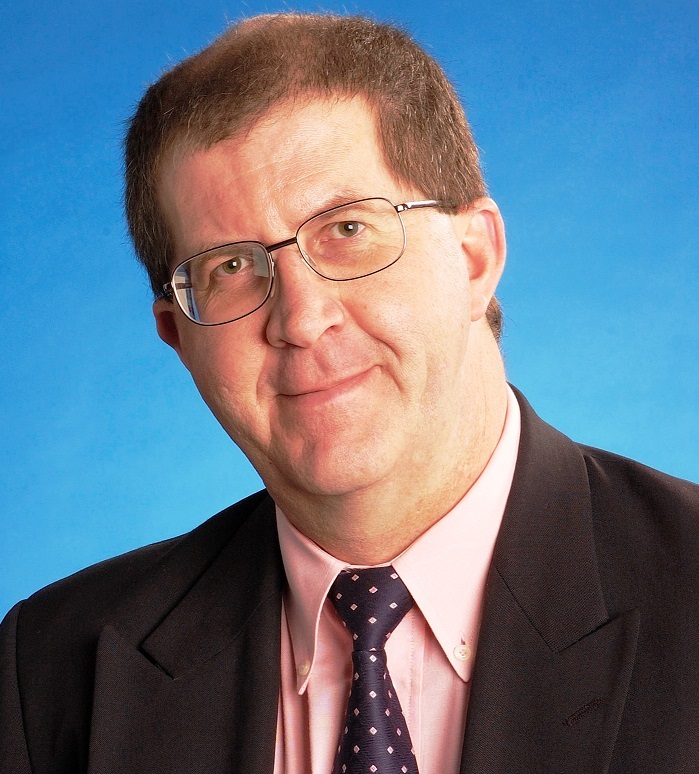Fraunhofer IFAM and Dr. Gareth McGrath, Director at Flexible Manufacturing Solutions Ltd., have a long history together. Dr. McGrath has been working with Fraunhofer IFAM since 1991, particularly in the context of the European Federation for Welding, Joining and Cutting e. V. (EWF). After many years, McGrath has now transferred his board seat in the area of adhesive bonding technology to Dr. Erik Meiß, the head of the Adhesive Bonding Technology Training Center at Fraunhofer IFAM. We spoke to him about this and his presentation «Techno-Economic Benefits of Quality Assurance in Adhesive Bonding» at the Bremen Bonding Days on November 24 and 25 in 2021.
Benefits of quality standards in bonding: Interview with Bremen Bonding Days speaker Dr. Gareth McGrath

Dr. McGrath, what are your expectations for the future years in terms of adhesive bonding technology and quality assurance in this field?
I am gradually handing over responsibility to the younger generation and have therefore handed over my chairmanship of EWF in the field of adhesive bonding technology to Dr. Meiß. However, I will continue to watch with interest to see what changes and optimizations take place. I hope that confidence in adhesive bonding technology will spread in the future not only in Europe, but also globally. Fraunhofer IFAM is involved in this respect, for example, with cooperation partners as far afield China, for example. Quality assurance in the context of bonding processes and standardized further training for bonding specialists should definitely be given a firm place globally beyond the European area. I trust Dr. Meiß to realize these changes within the framework of his position at EWF and to raise the transfer of knowledge to a global level.
In addition to the advanced training courses, how have you worked with IFAM in the past?
I have been working with Fraunhofer IFAM since 1991 to establish quality standards in adhesive bonding and to generate confidence in this technology in the industry. After all, adhesive bonding is the joining method of the 21st century! In the last five years, I have worked particularly with Prof. Dr. Groß to establish the Europe-wide standardization ISO 21368. I started here with the foundation stone, and Prof. Dr. Groß has integrated his expertise and adapted the standardization to German standards.
The expertise that we build up and renew together also flows into the courses at Fraunhofer IFAM: Particularly worthy of mention are the European Adhesive Bonder (EAB), European Adhesive Specialist (EAS) and the European Adhesive Engineer (EAE). These are highly recommended training courses.
What was your presentation «Techno-Economic Benefits of Quality Assurance in Adhesive Bonding» at the Bremen Bonding Days about? What are the key messages?
I was very pleased when Prof. Dr. Groß asked me if I would like to give a talk at the renowned Bremen Bonding Days. One of the key messages of the talk is that quality and continuing education play a crucial role in bonding. There are still many stakeholders who think that even unqualified employees can simply carry out bonding processes. The aim of the presentation and all further communications is to ensure that decision-makers, design engineers and managers know that further training and quality standards must be integrated into company processes. These training courses should – and Fraunhofer IFAM will – be constantly reviewed and renewed. After all, this is the only way to build long-term trust in bonding processes among companies from a wide range of industries.
What questions were there from the audience at the Bremen Bonding Days? What questions are you asked often?
I am often asked how the perception of bonding can be changed. In fact, it only works by firmly establishing further training for personnel and with the establishment of and compliance with standards. Face-to-face consultation with companies on site is also very relevant and can make a big difference.
What role do digital tools play in today's adhesive bonding technology?
Digital tools play an important role and, on the one hand, facilitate knowledge transfer through content hubs and linking. As mentioned earlier, knowledge transfer is very important to establish safe and trustworthy bonding processes. With a toolkit for Adhesive Selection, we at TWI (formerly The Welding Institute) have been able to achieve some benefits such as reducing time-to-market, improving the circular economy and enhancing the skills of employees.
Of course, we should not forget the digital training courses, with which we have also had very good experience at TWI. Some of these training courses have been developed in cooperation with Fraunhofer IFAM.
What impact does your work have on the environment and the topic of sustainability?
The production of many crucial sustainable products is based on adhesive bonding technology. Solar panels for generating sustainable energy, for example, can only be manufactured using adhesive bonding. In my area in Cambridge, England, entire solar plantations are currently being built. Many private homes have solar technologies installed on their rooftops. The batteries used to store energy – the sun doesn't shine every day – can only be produced using adhesive technology. The adhesive separates various fluids needed in the battery. A great example of adhesive bonding in practice with added value for the environment!
Thank you very much for the interview, Dr. McGrath!